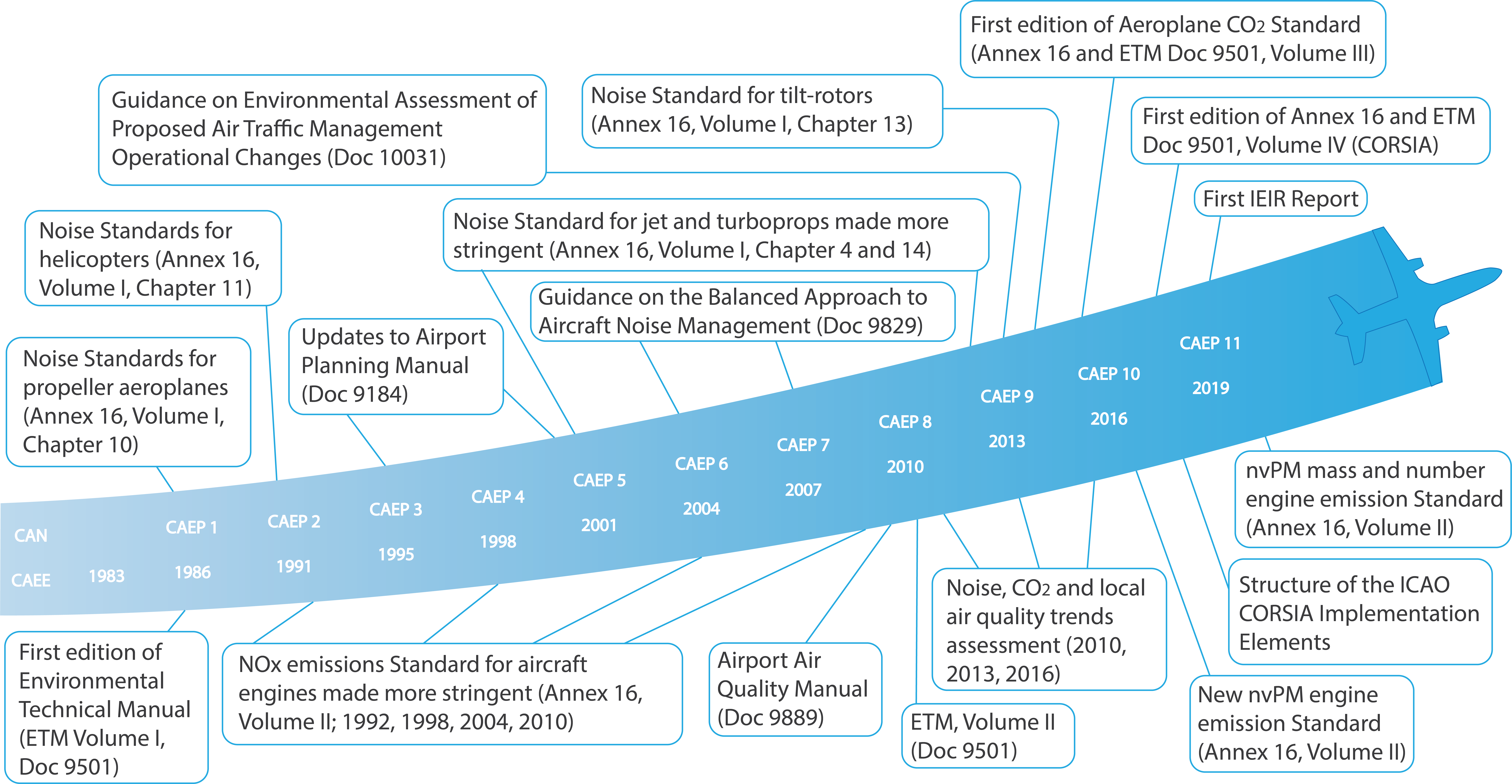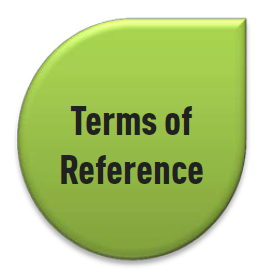Committee on Aviation Environmental Protection (CAEP)
CAEP Description
The Committee on Aviation Environmental Protection (CAEP) is a technical committee of the ICAO Council established in 1983. CAEP assists the Council in formulating new policies and adopting new Standards and Recommended Practices (SARPs) related to aircraft noise and emissions, and more generally to aviation environmental impact.
CAEP undertakes specific studies, as requested by the Council. Its scope of activities encompasses noise, local air quality (LAQ) and the basket of measures for reducing international aviation CO2 emissions, including aircraft technology, operational improvement, sustainable aviation fuels and market-based measures (CORSIA).
CAEP informs the Council's and Assembly's decision making with the ICAO Global Environmental Trends, which assess the present and future impact of aircraft noise and aircraft engine emissions. The Global Environmental Trends is crucial to the work of ICAO as it provides a robust single reference for sound discussion and decision-making.
The Council reviews and adopts CAEP recommendations, including amendments to the SARPs, and in turn reports to the ICAO Assembly where the main policies on environmental protection are ultimately defined.
CAEP Terms of Reference
CAEP's assessments and proposals are pursued taking into account:
1. effectiveness and reliability of certification schemes from the viewpoint of technical feasibility, economic reasonableness and environmental benefit to be achieved;
2. developments in other associated fields, e.g. land use planning, noise abatement operating procedures, emission control through operational practices, etc.;
3. international and national programmes of research into control of aircraft noise and emissions from aircraft engines;
4. the potential interdependence of measures taken to control noise and to control engine emissions;
With regards to CORSIA, the Committee addresses technical issues relating to the implementation of CORSIA.
Milestones

CAEP Members and Observers
As of February 2025, CAEP is composed of 33 Members from all regions of the world and 22 Observers. More than 1200 internationally-renowned experts are involved in CAEP activities and working groups.
Members (33 States) |
|---|
Argentina | Australia | Brazil |
Canada | Chile | China |
Côte d'Ivoire | Egypt | France |
Greece | Ghana | Germany |
India | Indonesia | Italy |
Japan | Kenya | Netherlands |
Nigeria | Oman | Poland |
| Qatar | Saudi Arabia | Russian Federation |
| Singapore | South Africa | Spain |
Switzerland | Sweden | Ukraine |
United Arab Emirates | United Kingdom | United States |
Observers (7 States and 15 Organizations) | ||
|---|---|---|
States | ||
| Austria | Dominican Republic | Malaysia |
| Norway |
Peru |
Portugal |
| Türkiye | | |
International Non-Governmental Organizations | ||
| Advanced Biofuels Association (ABFA) |
Airports Council International (ACI) |
Civil Air Navigation Services Organization (CANSO) |
| International Air Transport Organization (IATA) |
International Business Aviation Council (IBAC) |
International Coordinating Council of Aerospace Industries Associations (ICCAIA) |
| International Coalition for Sustainable Aviation (ICSA) |
International Federation of Air Line Pilots' Associations (IFALPA) |
International Petroleum Industry Environmental Conservation Association (IPIECA) |
United Nations Bodies | ||
| United Nations Environment Programme (UNEP) |
United Nations Climate Change (UNFCCC) |
World Meteorological Organization (WMO) |
Regional State Organizations | ||
| European Union (EU) | Arab Civil Aviation Organization (ACAO) | African Civil Aviation Commission (AFCAC) |
CAEP Structure (Leading up to CAEP/13 in 2025)

CAEP Activities
Working group 1 (WG1): Aircraft Noise Technical Issues
The main aim of WG1 is to keep international aircraft noise certification Standards (Annex 16, Volume I) up-to-date and effective, while ensuring that the certification procedures are as simple and inexpensive as possible.
Working group 2 (WG2): Airports and Operations
WG2 addresses aircraft noise and emissions issues linked to airports and operations.
Working group 3 (WG3): Emissions Technical Issues
WG3 deals with aircraft performance and emission technical matters, including the updating of Annex 16 - Volume II and the development of the new aircraft CO2 Standard, Annex 16 – Volume III.
Working group 4 (WG4): CORSIA
WG4 deals with CORSIA, including the maintenance of Annex 16 - Volume IV.
The Fuels Task Group addresses technical issues related to aviation fuels, including the methodologies for considering CORSIA Sustainable Aviation Fuels and CORSIA Lower Carbon Aviation Fuels under Annex 16, Vol IV.
Modelling and Databases Group (MDG)
The MDG group carries out modelling efforts in support to the activities of the other CAEP groups and maintains various databases such as the movements, fleet, and population databases.
Forecasting and Economic Analysis Support Group (FESG)
The main role of the FESG is to develop and maintain the databases necessary to provide the framework for performing economic analysis and forecasting fleet growth. It provides support to the other working groups within CAEP and works with them on data issues that concern more than one working group.
Aviation Carbon Calculator Support Group (ACCS)
The ACCS group is focused on the development and update of the ICAO Carbon Calculator, which isbased on an impartial and transparent methodology for computing the CO2 emissions from passenger air travel. More information on the ICAO Carbon Calculator can be found here.
Impacts and Science Group (ISG)
ISG role is to provide the best possible consensus information from the science community to CAEP on aviation's impacts on climate, air quality and noise issues.
SustainabilityCertification Schemes Evaluation Group (SCSEG)
The SCSEG will undertake the evaluation of Sustainability Certification Schemes
(SCS) in the context of their recognition under CORSIA. More information can be found here.
Long-term Global Aspirational Goal Task Group (LTAGTG) – this task group provides technical support in the exploration of the feasibility of a long-term global aspirational goal for international civil aviation CO2 emissions reductions, including options and roadmaps for their realization.
Top




